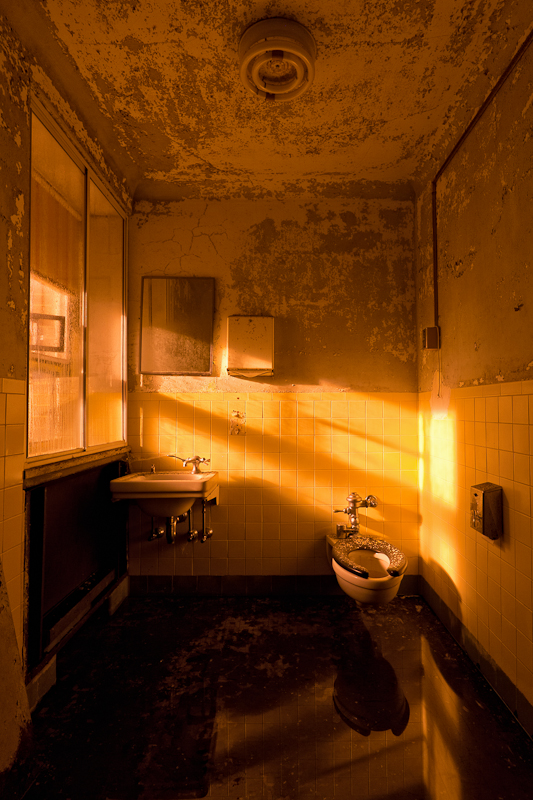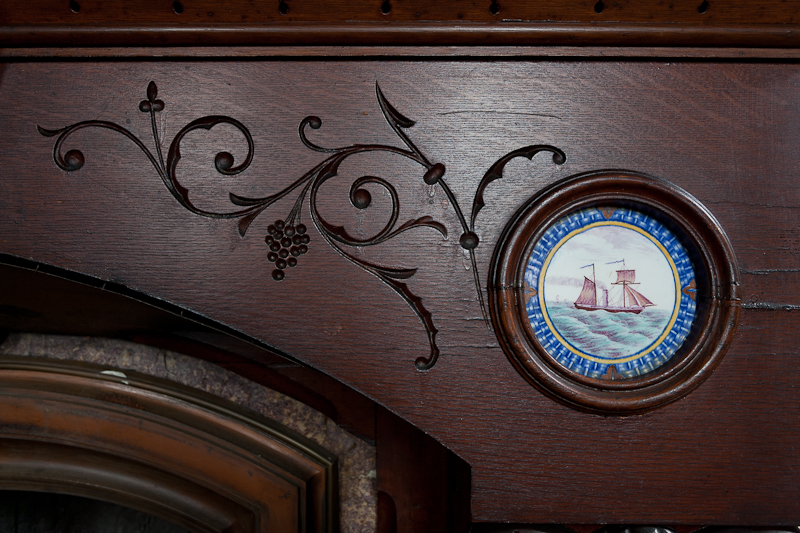 Upon opening its doors in 1904, Norwich State Hospital admitted 95 patients in one single building. Within a few short years patient numbers grew dramatically, causing the hospital to expand. Norwich quickly became a self-sufficient institution, with a power plant, farm, bakery and laboratory as well as a theatre and bowling alley for recreation.
Upon opening its doors in 1904, Norwich State Hospital admitted 95 patients in one single building. Within a few short years patient numbers grew dramatically, causing the hospital to expand. Norwich quickly became a self-sufficient institution, with a power plant, farm, bakery and laboratory as well as a theatre and bowling alley for recreation.
Grossinger's Resort Indoor Pool
Years ago, the Grossinger's Resort in Liberty, NY, was booming with guests. During the summer months, Jews would congregate here as an escape from the big city and come to Grossinger's, a place they felt accepted. All the food that was prepared was Kosher and the ammenities provided were spoke highly of. Celebrities such as singer Eddie Fisher and boxer Rocky Marciano frequented the resort.
The indoor pool was designed by Morris Lapidus, who was also known as the "architect of make believe." It was one of the grand masterpieces of the resort. The pool was adorned with lounge chairs, a diving board, beautiful wood beams, brass orb lighting fixtures and two viewing windows which gave guests a submarine-like feel as they viewed the underwater activity in the pool.

Since the resort closed in 1986, many of the lawn chairs have gone missing, ferns and moss have began covering the tiles and the wooden beams have begun to rot, but the pool is still a marvel.
"Poolside"
"Bronzer"
"No Diving"
"UFO (Part II)"
Photo: "Triple"
Inside a triple patient room at the South Mountain Sanatorium in Pennsylvania.
This four story building at the Mont Alto State Sanatorium opened in 1940 and was a Children's Preventatorium until 1956. At that time, the building became a home for mentally retarded women. And then from 1965 until it closed in 1985, it housed geriatric patients.
Photo: "Depths"
Dry dock #4 at Mare Island Naval Shipyard
On September 16, 1854, Mare Island Naval Shipyard became the first permanent US Navy Shipyard on the West Coast. By 1941, the third drydock had been completed and this dry dock, number four, was in the process of being built.
Photo: "Limelight"
Sodium vapor light seeps into a second floor bathroom at the Mont Alto Sanatorium just before dawn. This floor of this once children's preventorium was designed to accomodate young girls.
Photo: "Far Out"
Guest room at the Adler Hotel in Sharon Springs, New York
Th Adler Hotel was built by Louis Adler in the late 1920's. He operated the hotel in the 1950's when it was purchased by another party. The hotel changed hands another three times before becoming abandoned in 2004. It is now owned by Sharon Springs, Inc, a Korean Investment Company with plans to renovate the hotel.
Photo: "Personified"
Norwich State Hospital opened its doors in 1904. In the early years, the Superntendents believed in the importance of education and that the mechanical restraint of patients was more effective than medicating them. However, in the 1940's a number of federally funded studies, done by Dr. W Paul Havens, led to the experimentation of hepatitis on patients, which the government only recently admitted to.
Photo: "Intimidate"
Built far from civilization, Norwich State Hospital opened its doors in 1904 with just one building and ninety five patients. As the campus grew, the buildings were connected via a series of utility tunnels to help with the transport of patients and employees. As with most asylums of the time, the campus expansion also included a private power plant, farm, bakery, laboratory and theatre.
Photo: "Lethargy"
Construction on Building 2 of the Mont Alto Sanatorium in Pennsylvania began in 1938. The four story building was constructed as a children's preventorium. The first floor was designated for boys, while the second floor was for girls. The two upper floors, over the main building and not extending over the wings, seem to have been for staff use. The building featured two wings jetting off from the main building and once contained two indoor pools, a library, classrooms, an excercise room, an auditorium and a number of patient rooms.
Photo: "Fireplace"
Fireplace inside the Administration Building at Greystone Park Psychiatric Hospital in Morris Plains, New Jersey.
Photo: "Ivory Keys"
Chapel inside the Administration Building of Greystone Park Psychiatric Hospital in Morris Plains, New Jersey.
In 1961 Bob Dylan made a trip from Minnesota to Greystone Park Psychiatric to visit singer and idol Woody Guthrie, who was being treated at Greystone for Huntington's disease. When Guthrie's disease worsened, it was assumed he was either drunk or schizophrenic and was placed in the institution for treatment.
Photo: "Russian Roulette"
The Greystone Park Psychiatric campus was a self-contained community with vocational and recreational facilities developed under the Kirkbride plan and philosophy that the mentally ill, if in a conducive environment, could be cured and treated. Each of the wards were meant to accommodate 20 patients and had a dining room, exercise room, and parlor. The rooms were to be light and airy with only 2 patients per room.
The Henery Apartments
HISTORY
The Henery Apartments on South Sutter Street in Stockton were designed for Samuel Henery by Stockton's well known architect, Glenn Allen and resurected by Clark and Henery Construction in 1913. The brick and terracotta building has a Mansard roof style and three dormers facing Sutter Street and was the first evidence of French Second Empire style in Stockton. Glenn Allen, architect from 1913 until 1938, is also known for the Stockton Civic Memorial Auditorium, the Jewish Community Center, First Church of Christ Scientist, Mayfair Apartments, Tudor Flats and the Hotel Terry.
The Henery Apartments were designated a Stockton Landmark in 1986.
RECENT PHOTOS
"Lobby Call" - The main lobby of the Henery Apartments
"Labyrinth" - Main staircase
"Seaweed" - Apartment bathroom
"Apartment Livin" - One of two Murphy Beds left in the building
"Tropics" - Flamingo detail on a ceramic clawfoot tub
"Woven" - Heater inside an apartment unit
"Lottery" - Inside the basement of the building
"Boob Tube" - Old television and vacuum inside the basement of the Henery Apartments
Photo: "Drowning"
Inside the hospital building at Norwich State Hospital.
Norwich State Hospital opened in Preston, Connecticut in 1904 as the Norwich Hospital for the Insane. Norwich was built as a self-sufficient facility with its own farm, bakery, laboratory, power plant, staff & doctor housing as well as a bowling alley. What began as a single building housing under 100 mentally ill patients expanded to over twenty buildings and 3,000 patients by the 1950's. The facility operated successfully until the 1970's, when the population of patients decreased and most of the buildings, with the exception of a few original ones, were closed. The hospital closed in 1996 and last year demolition began.
Photo: "Lounge"
Greystone Park Psychiatric was known as the largest contiguous foundation in the United States, from it's opening until the Pentagon was built in 1943. This facility was built in 1848 to relieve overcrowding at nearby Trenton State Hospital. In fact, the 292 of Greystone's initial patients transfered from Trenton. Within 4 short years of opening, Greystone was accomodating 200 patients above capacity. An additional dorm building was constructed and existing dining rooms were turned into dormitories to accomodate the patients.























